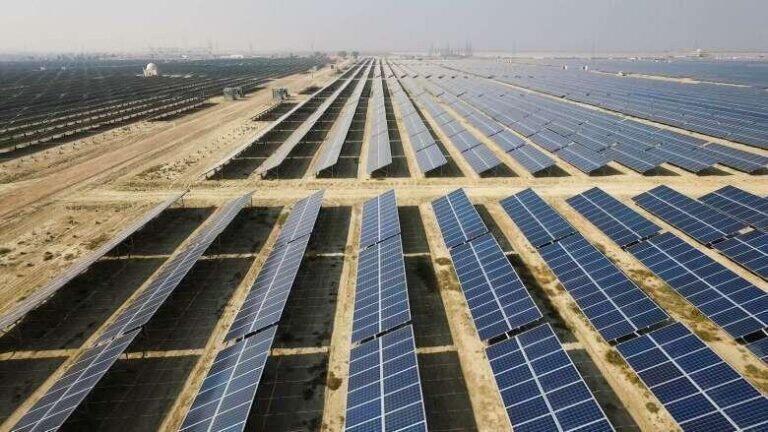
|
Getting your Trinity Audio player ready...
|
Introduction
ISLAMABAD: The National Electric Power Regulatory Authority (NEPRA) is preparing to impose an additional financial burden of Rs8.7 billion on power consumers. This decision is primarily to compensate Independent Power Plants (IPPs) that have remained idle and did not generate electricity. The government has recently terminated contracts with some IPPs to avoid capacity payments, and discussions are ongoing with another 18 IPPs to finalize a revised deal within six months.
Overview of Current Situation
Capacity Charges and Energy Costs
Currently, consumers are paying 70% of their total bills as capacity charges, which amount to Rs17 per unit, while the actual energy cost for generation is only Rs9.25 per unit. This significant disparity highlights the burden of maintaining idle capacity on the consumers.
Requests for Price Adjustments
Power distribution companies (Discos) have submitted their requests for adjustments for the first quarter of the financial year 2024-25 (July to September 2024). The power regulator, NEPRA, will conduct a public hearing on November 20 to review these requests.
Breakdown of Proposed Charges
The Discos, including Faisalabad Electric Supply Company (FESCO), Gujranwala Electric Power Company (GEPCO), Islamabad Electric Supply Company (IESCO), Lahore Electric Supply Company (LESCO), Multan Electric Power Company (MEPCO), Peshawar Electric Supply Company (PESCO), Quetta Electric Supply Company (QESCO), Sukkur Electric Supply Company (SEPCO), and Tribal Areas Electricity Supply Company (TESCO), have requested NEPRA to approve a power price hike. If approved, this would impose an additional burden of Rs8.71 billion on electricity consumers nationwide.
Details of the Proposed Adjustments
Capacity Charges
The Discos’ proposal includes Rs8.06 billion for capacity charges to compensate power plants for maintaining availability, even when not actively generating electricity. This component is crucial to ensuring the readiness of power plants to meet future demand.
Operations and Maintenance Costs
An additional Rs1.25 billion is requested for operations and maintenance costs. These funds are essential for infrastructure upkeep, network reliability, and overall system maintenance. Proper maintenance is vital to prevent outages and ensure a stable power supply.
System Charges and Market Operations Fees
The proposal also includes Rs1.65 billion for system charges and market operations fees (UoSC & MoF). These charges cover the costs associated with the operation of the grid system and market activities, including administrative and logistical expenses required to keep the power supply chain functional.
Savings from Reduced Transmission and Distribution Losses
Interestingly, the documents mention a saving of approximately Rs2.25 billion achieved through reduced transmission and distribution losses. This saving, resulting from improved efficiency in the power network, represents an effort to counterbalance some of the increased costs and reduce the total burden on consumers.
NEPRA Hearing and Potential Impacts
The NEPRA hearing scheduled for November 20 will review the distribution companies’ requests in detail. If approved, the increase will impact customers across the country, including consumers of K-Electric, who will experience a similar adjustment in their bills. This adjustment could affect household budgets nationwide as it directly translates into higher monthly bills for electricity users.
Implications for Consumers
This potential price hike comes at a time when consumers are already grappling with high living costs. An increase in electricity bills would exacerbate financial stress, particularly for lower and middle-income households. The decision by NEPRA will be closely watched, as it will have widespread implications for the affordability of electricity.
Government’s Role and Future Actions
The government’s role in renegotiating contracts with IPPs and seeking to reduce capacity payments is crucial. Ensuring that power generation and distribution are cost-effective and efficient is essential for long-term energy sustainability. Future actions should focus on minimizing idle capacity charges and enhancing the operational efficiency of the power sector.
Conclusion
The proposed Rs8.7 billion burden on consumers to compensate idle IPPs is a contentious issue that highlights the complexities of the power sector in Pakistan. While the government’s efforts to renegotiate contracts with IPPs are a step in the right direction, the immediate impact on consumers cannot be ignored. The NEPRA hearing on November 20 will be a critical juncture in determining the future course of electricity pricing and its implications for consumers.
FAQs
Why is NEPRA imposing an additional burden on consumers?
NEPRA is likely to impose an additional burden to compensate Independent Power Plants (IPPs) that have remained idle and did not generate electricity. This is to cover the capacity charges for maintaining these plants.
What are capacity charges?
Capacity charges are costs paid to power plants for being available to generate electricity, even if they do not actually produce any power. These charges ensure that the plants are ready to meet future demand.
How much will the new price hike cost consumers?
If approved, the proposed price hike will impose an additional burden of Rs8.71 billion on electricity consumers nationwide.
What are the proposed charges for?
The proposed charges include Rs8.06 billion for capacity charges, Rs1.25 billion for operations and maintenance costs, and Rs1.65 billion for system charges and market operations fees.
How will this price hike affect consumers?
This price hike will increase electricity bills, adding to the financial burden on consumers. It will impact household budgets and increase living costs, particularly for lower and middle-income families.
ALSO READ:
https://skipper.pk/2024/11/07/sugar-prices-drop-by-up-to-8-5/






